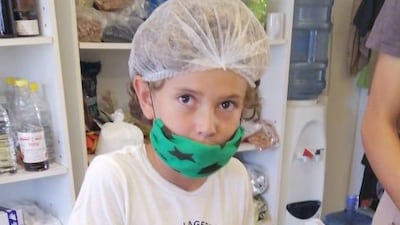Restaurants forced to close as a result of Tuesday’s devastating blast in Beirut have diverted operations towards supplying community food banks.
As the smoke settles across a devastated city, solidarity shown in communities has shone through.
Like many others, business owner Nabil Khoury is only now beginning to rebuild after the shock of two colossal blasts at Beirut’s port.
His Dry and Raw health food restaurant near the city’s Lebanese Canadian Hospital suffered damage, but has become a focal point for emergency meals for those in need.
“So many suburbs are devastated, even those far from the explosion,” said Mr Khoury, who started his business in February, just two years after returning to Beirut after 25 years away from Lebanon.
“Many houses have collapsed and the damage is severe, in central Beirut few houses have been spared from damage.
“Volunteers have been helping recovering people from under the rubble and cleaning streets, so as a small business we wanted to help.”
His was one of the first in the city to offer food from within the community to those in need.
Clients of the business donated 80 kilograms of meat and chicken to prepare meals, while volunteers distributed 110 meals the day after the explosion.
Read More
Beirut explosion: 'Orient Queen' cruise liner capsizes after blast
UAE's leaders send aid worth millions to Lebanon
Another 500 meals were distributed on Thursday.
Food packages were handed out to recovery teams removing rubble and to medical students called into duty to stitch and bandage wounds of the injured.
As thoughts turn to the future, Mr Khoury has deep concerns as to how food and vital supplies will be brought into the city.
“The need for food is great, and there is also no glass left in the city or aluminium to make window frames,” said Mr Khoury, whose mother, brother and wider family are also in Lebanon.
“The goods are usually imported by sea, but that is impossible now because the port is destroyed.
“No one expects the port to return to any kind of operation for at least six months.”
The Lebanese Food Bank is also helping distribute supplies across Beirut to some of the worst hit areas.
The project was established by a group of businessmen in 2012 and delivered 30,000 food boxes to the poorest areas of Beirut two weeks before the blast.
Demand for the food bank’s services is now greater than ever, according to the project's founder and president Kamal Sinno.
“People are astonished when we bring them supplies as many are desperate with what has happened,” he said.
‘There is hunger throughout Lebanon so we want people to donate any kind of food that we can then distribute.”


